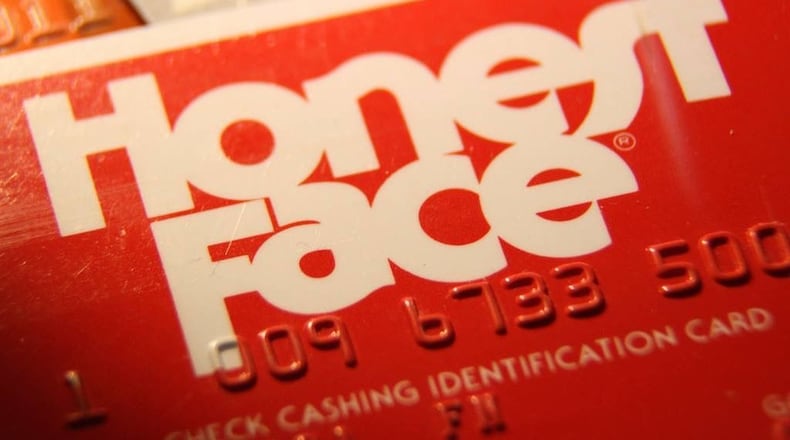Thanks to the pandemic, the buck is stopping at fewer businesses than ever.
In the COVID era — as retailers, restaurants, bars and other venues eschew cash and check — electronics funds are sometimes the only way to pay. Mercedes-Benz Stadium and Truist Park have both said goodbye to greenbacks. In 2020, less than 20% of payments were made with cash, according to a recent Federal Reserve study. In the same year, debit, credit and automated clearing house (ACH) payments accounted for 67% of transactions.
The coronavirus pandemic accelerated the e-pay movement, but banks have been testing consumer appetites for computerized convenience for decades.
In the mid-1970s, the First National Bank of Atlanta’s Honest Face check cashing verification system was at the forefront of the shift to credit and debit cards.
Credit: AJC Print
Credit: AJC Print
“Nearly 300,000 Atlantans now have an Honest Face,” the Journal’s Neil Swan wrote in a Jan. 22, 1976, article. “Skeptics loudly vow they’ll never get one, but about 5,000 more are applying for one every week.”
According to Swan’s report, 85,000 people in metro Atlanta used their Honest Face cards an average of 1.5 times weekly.
The Honest Face system merely verified if a cardholder was “clean” — having no bad checks at participating locations (metro Atlanta supermarkets, at the time) — and wasn’t itself a form of electronic payment. But shoppers accustomed to getting check approvals from other humans were somewhat taken aback by the idea of a computer doing such work.
“I’ve been cashing checks at the same store for 14 years,” an Atlanta office worker told the Journal. “Why do I need that card now?”
>> MORE DEJA NEWS: Check out what we’ve covered before (and again)
Bankers, however, were already envisioning a myriad of uses for such new technologies, despite consumer skepticism. Electronic funds transfer, now ubiquitous, was among the innovations banks foresaw as “a revolution in the way (consumers) handle money and pay bills,” as Swan put it.
“With customers using bank-oriented cards in still another way and with the computer technology employed to verify each check-casher, we have moved a long, long way toward complete electronic funds transfer,” First National President Thomas R. Williams told the Journal.
Honest Face proved lucrative when First National Bank sold the system to Telecredit Inc. of Los Angeles for an undisclosed sum in 1981. By 1984, First National (renamed First Atlanta) had moved on, putting its energies into expanding the VISA credit card market in the Southeast.
Atlanta shoppers were primed for such an initiative, having by and large accepted that computers were slowly becoming the future of cashiering. Lots of consumers hopped on the check-cashing card bandwagon here due to Honest Face, but didn’t necessarily enjoy the ride.
“I don’t like it. I don’t like using (the card),” one housewife said during the program’s 1976 heyday. “But I knew that sooner or later I’d have to get one, so I did.”
ABOUT DEJA NEWS
In this series, we scour the AJC archives for the most interesting news from days gone by, show you the original front page and update the story.
If you have a story you’d like researched and featured in AJC Deja News, send an email with as much information as you know. Email: malbright@ajc.com. Use the subject line “AJC Deja News.”
About the Author
Keep Reading
The Latest
Featured





